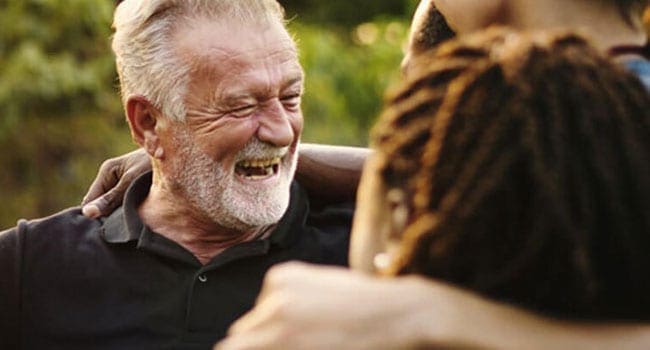 American radio personality, writer, speaker and author Earl Nightingale once said, “Our rewards will always be in exact proportion to our service.”
American radio personality, writer, speaker and author Earl Nightingale once said, “Our rewards will always be in exact proportion to our service.”
I recently attended an event where I saw evidence of this in every person present. This year marks the 60th anniversary of the founding of one of the most successful volunteer movements in Western Canadian history, the Frontier Apostolate. Hundreds returned to the centre of the movement, Prince George, B.C., to celebrate. All had stories of how their experience brought rewards beyond their expectations, and all felt that they had received far more than they had given.
The movement was born out of necessity. When Bishop Fergus O’Grady was given the responsibility of the Catholic church in the vast area of northern British Columbia in 1956, he was faced with a daunting task. The area was developing rapidly and many immigrants were coming from traditionally Catholic regions. There were only two Catholic schools and few churches, and there was not nearly enough staff to meet the growing needs. O’Grady came up with a creative plan: invite people to volunteer for two years to help him in his work.
The result was astounding. Between 1956 and 1993, thousands of people (primarily in their 20s) came to northern British Columbia from all over Canada, the United States, Ireland, the United Kingdom and many other places. They built and maintained schools and churches, drove buses, taught and worked as secretaries. Some took paying jobs and gave the money back to O’Grady.
The number of schools and churches increased exponentially and O’Grady was able to meet the needs of a growing population until the diocese could sustain itself.
O’Grady recognized something that is innate in humans, regardless of where we are from or what our spiritual beliefs: we want to make a positive difference in the world.
He then nurtured this by making each individual aware of the tremendous gifts they had to offer. Most Frontier Apostles came to northern B.C. with little or no experience. O’Grady gave them the opportunity to develop their potential and the results were phenomenal. He became the most sincere cheerleader of every individual who worked under him, and he was arguably one of the most accessible and beloved bishops the church had ever seen. When O’Grady passed away in 1998, so many people wanted to celebrate his life that the diocese had to rent a civic arena for the funeral.
Nightingale also said, “Do more than what you are paid for and soon you will be.” This was certainly the case with all of the former Frontier Apostles who I spoke to. Many decided to stay in the region and have gone on to lead productive lives and raise families, and continue to make positive contributions to their communities. Most, however, returned home with not only wonderful memories but also real-world work experience that propelled them into well-paying professions.
Although the Frontier Apostolate has long ended, there are many new and exciting opportunities to volunteer in the world. They may be within our communities or in developing countries. Some are supported by governments and others are part of churches or other non-profit organizations. They are all highly beneficial to young people exploring their interests and seeking experience.
While volunteerism sets us up for professional success, we gain much more. We feel good by doing good for others and we realize that we are a part of something much greater than ourselves. All of the generations of Frontier Apostles at the reunion, for example, shared a joy in being part of a community that had helped to build and develop one of the most beautiful and amazing parts of the world, and that is a reward in itself.
Gerry Chidiac is an award-winning high school teacher specializing in languages, genocide studies and work with at-risk students.
The views, opinions and positions expressed by columnists and contributors are the author’s alone. They do not inherently or expressly reflect the views, opinions and/or positions of our publication.


